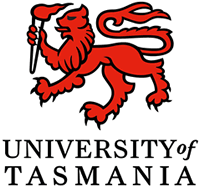Dr Nicole Hill, Prof Philip Boyd
Applications accepted all year round
About the Project
The Southern Ocean and Antarctica are vast and geographically remote and hence collecting in situ physical and biological data is challenging. Information from satellites, oceanographic profiling floats, and other validated remotely sensed data in conjunction with numerical or statistical models provide valuable synoptic information about the physical environment. Linking biological data with synoptic environmental data is an effective approach to maximise our use of sparse biological data and increase our understanding about patterns in the distribution of key biota and diversity as well as their potential drivers. Such information can be further used to develop baselines and generate hypotheses about the effects of future environmental changes to ecosystems.
Nevertheless, there is scope to improve existing environmental variables derived from remote sensing and numerical models, especially in terms of coverage closer to Antarctica and increased resolution in time and space across the Southern Ocean. The recently established ARC Antarctic Gateway Partnership also provides opportunity to utilise new tools and technologies to characterise the Southern Ocean and to develop biologically-relevant variables. The aim of this project is to improve the variety, coverage and/or resolution of environmental variables currently available for the Southern Ocean and Antarctica, evaluate their usefulness for describing biological patterns and to use these variables, in conjunction with other variables, to enhance our understanding of the distribution of benthic and pelagic organisms.
Other advisors on this project will be Dr Stuart Corney (ACE CRC) and Dr Simon Wotherspoon (IMAS/Australian Antarctic Division).
Keywords: Southern Ocean, biodiversity, prediction, modelling, iceberg, environmental surrogates, species distribution
This project is supported by the Australian Research Council (ARC) Special Research Initiative for Antarctic Gateway Partnership. For information about the Antarctic Gateway Partnership visit the Institute for Marine and Antarctic Studies (IMAS) web page.
Funding Notes
The ARC Antarctic Gateway Partnership is seeking applications from suitably qualified graduates for living allowance Scholarships to undertake PhD projects.
The UTAS Graduate Research Office provides detailed information about scholarships including eligibility, award conditions and application processes.
To be considered for an ARC Antarctic Gateway Partnership living allowance Scholarship it is necessary to specify this on the Admissions and Scholarship Application Part 9.1.
Tuition fees apply to all international candidates. Limited numbers of UTAS tuition fee scholarships are also available on a competitive basis to candidates undertaking projects closely aligned with the ARC Antarctic Gateway Partnership's research objectives.

 Continue with Facebook
Continue with Facebook

